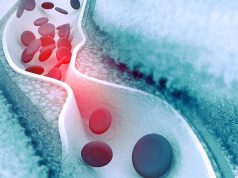Active tCDS improves cognitive functions in memory domain, including word recall, recall of test instructions, word recognition
By Elana Gotkine HealthDay Reporter
THURSDAY, Dec. 7, 2023 (HealthDay News) — For patients with Alzheimer disease (AD), active transcranial direct current stimulation (tDCS) may improve cognitive function, according to a study published online Dec. 5 in General Psychiatry.
Xingxing Li, from the Ningbo Kangning Hospital & Affiliated Mental Health Centre at Ningbo University in China, and colleagues examined the role of tDCS in improving cognition among patients with AD. One hundred twenty-four patients were randomly assigned to active tDCS or sham tDCS (63 and 61 patients, respectively), applied at the dorsolateral prefrontal cortex for 30 treatment sessions across six weeks.
The researchers found that multiple courses of tDCS improved the cognitive functions of patients with AD, especially word recall, recall of test instructions, and word recognition in the memory domain. Following active treatment, there was enhancement in the damaged motor-evoked potential (MEP) level. Negative correlations were seen for improvements in the Alzheimer’s Disease Assessment Scale-Cognitive total and subitem (word recall and word recognition) scores with the enhancement of MEP in the active tDCS group.
“The results of this study strongly indicate that tDCS treatment is a significant and promising intervention for improving cognitive function in AD,” the authors write. “Further research is needed to elucidate the relationship between plasticity and cognition.”
Copyright © 2023 HealthDay. All rights reserved.








